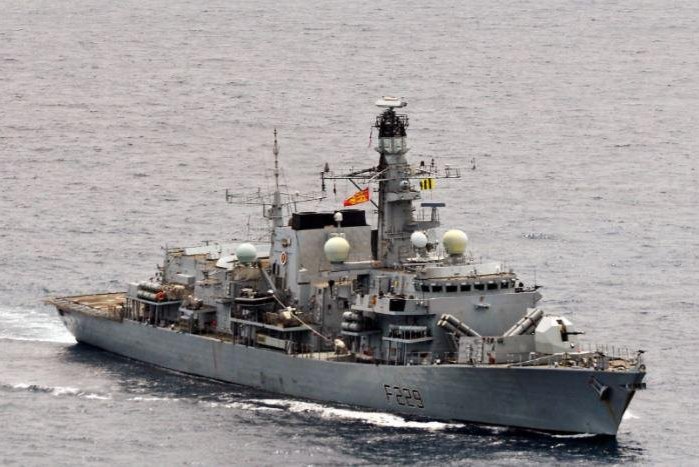The British frigate HMS Lancaster leads ships from Britain, Estonia, Latvia and Lithuania this week in joint exercises in the Baltic Sea. Photo courtesy of Royal Navy
March 12 (UPI) -- Warships from Britain, Lithuania, Estonia and Latvia, with Sweden's air force, joined forces for an exercise in the south Baltic Sea this week.
It is the first major operation of the Joint Expeditionary Force, a Britain-led partnership of nine northern European countries -- Denmark, Finland, Estonia, Latvia, Lithuania, the Netherlands, Sweden, Norway, plus Britain -- organized in 2014 for special-purpose missions, including warfighting and humanitarian assistance purposes.
The exercise concludes on Sunday, and features maritime security, notably guarding of waterways and escorting transport vessels by countering simulated air, submarine and ship attacks, as well as mine countermeasures operations and naval surface fire training.
British frigates HMS Lancaster and HMS Westminster and replenishment tanker RFA Tiderace are involved in the exercises, as are British helicopters.
They are joined by the Estonian Navy's auxiliary ship ENS Wambola, patrol vessel P-08 Jelgava of the Latvian Navy, and the Lithuanian Navy's minehunter P15 Sėlis and minelayer N42 Jotvingis.
All participating naval vessels represent NATO countries.
"Some of [Britain's] closest and most steadfast Allies are found in the Baltics," commented British Defense Minister Ben Wallace in a statement on Friday.
"This deployment is both the latest example of a long and proud history of defense cooperation and a clear demonstration of the capability of the [Britain]-led Joint Expeditionary Force," Wallace said.
The exercise includes practice in firefighting, medical training, damage control, ships sailing in close formation, at-sea refueling, gunnery, air defense and intensive training with helicopters.
The British Ministry of Defense statement noted that another of the exercise's ' challenges is dealing with the late-winter weather on the Baltic Sea, which potentially includes sub-zero temperatures and snowstorms.
"As the first maritime patrol of made up of exclusively JEF nations, we are ensuring our ships and people are ready to operate in challenging conditions alongside our Estonian, Latvian and Lithuanian allies," Wallace said.















